When he first got involved with Empower Golf, PGA professional Sam Newbrun was hoping for a fulfilling challenge but what he perhaps didn’t expect was the new perspective on life it would give him.
For the past 18 months the 30-year-old, who lives in Manly with his long-term partner Sabrina, has been using the power of the Paramotion, other adaptive equipment and his person centred approach to transform the golf games – and indeed lives – of the clients he coaches.
The Paramotion acts as a four-wheel-drive wheelchair, giving people with various disabilities the opportunity to get out onto the course, stand up and play the game they love.
Sam’s own love of golf was fostered from an early age, and after chasing the dream of becoming a tour professional for ten years, he now focuses all his energy on helping others to improve their game – while still striving to improve himself.
Since he and Sabrina returned from Vancouver – where he worked at Marine Drive, an exclusive private club in Vancouver – Sam has been coaching at Long Reef Golf Club, Warringah Golf Club and Terry Hills Par Three, all located in and around Sydney’s northern beaches.
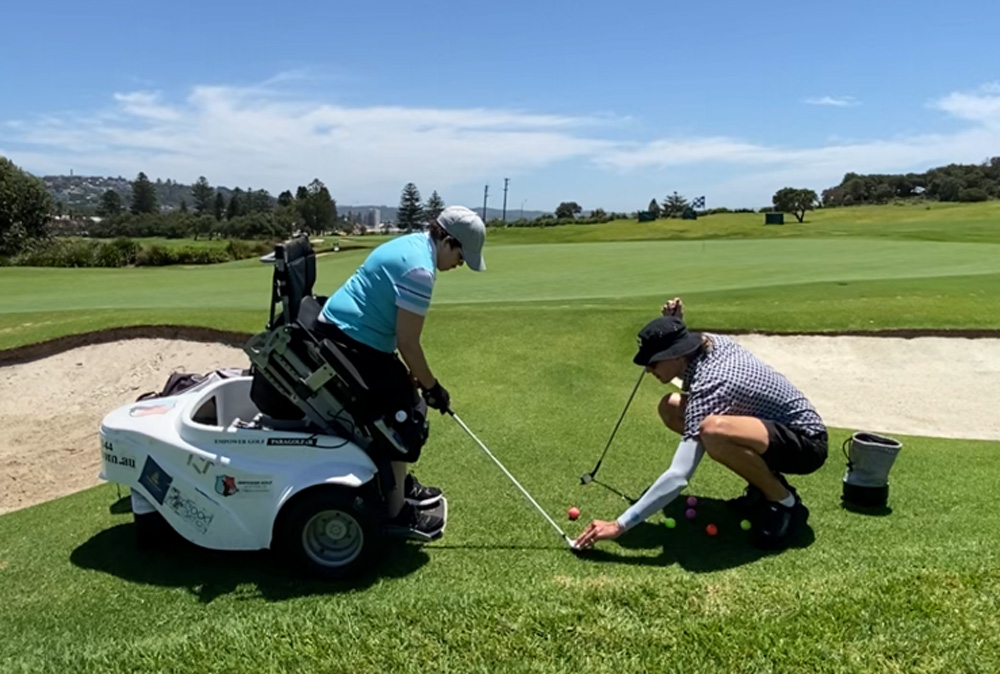
One of the 35 plus Paramotions in Australia is in operation at Long Reef, so Sam readily accepted the challenge of persuading people living with disability that they could take up the game or, in some instances, re-learn the skills they thought had been lost forever.
As much as his clients benefit from Sam’s expertise, he derives as much – if not more – satisfaction from the improvements they have made, both on and off the course. Sam believes he has become a better coach as a result, not least as he tends to choose his words of wisdom more carefully these days.
“It’s been such a great journey for me personally and no doubt for the guys that I coach,” he said.
“Each client I teach is different and they’ve all got their own challenges and needs, but I love that aspect of my coaching. To see the improvement they’ve all made since they started coming to see me is really rewarding.
“My best mate’s Mum told me that working with people with disabilities would be really good for me, and she was absolutely right. I’ve learned a lot about other people but also about myself. You have to adapt to their different needs and come up new ways to help them improve, so you’ve really got to focus on the person and what you can do for them, rather than rely on tried and tested methods of coaching.
“These days I probably talk a bit less in lessons than I used to, and I’ve actually found that the less you say, the more people learn. Rather than crowding their minds with 10 different pieces of advice, if you can say one or two things which resonates with them and they can take that away from their lesson, that’s the best way to improve their golf which is then going to have the client enjoying the game more.”
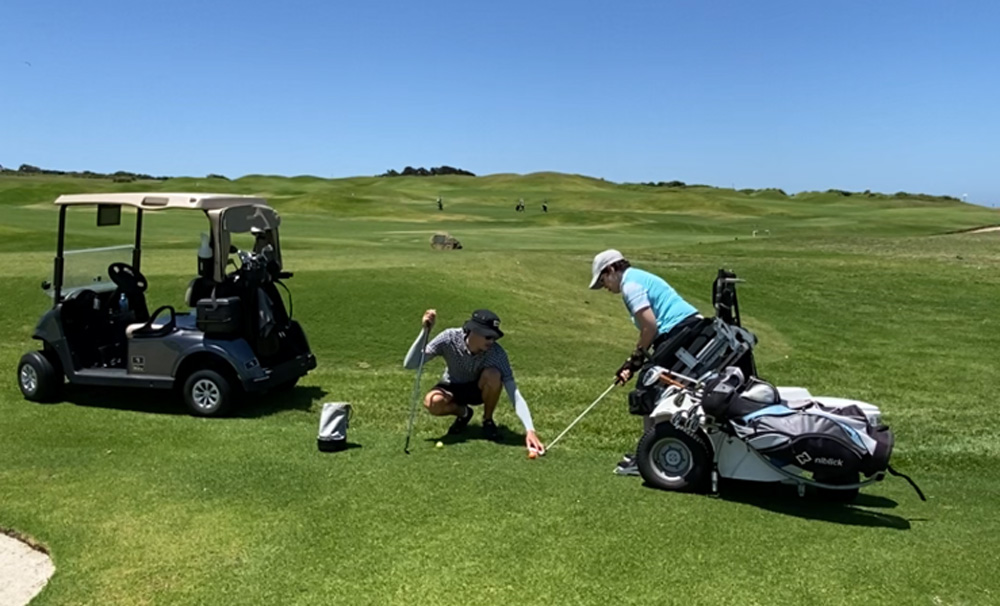
The results speak for themselves, with Sam’s reputation growing to the extent that in recent months, he has taken on up to 10 new clients per week. In November alone, Sam conducted more than 50 lessons with his Empower Golf clients.
They include people who have suffered from brain trauma, Parkinson’s disease and multiple sclerosis, as well as people who have lost the use of some bodily functions.
To see how they cope with the difficulties in their lives has been an eye-opening and inspirational experience for Sam, and has certainly brought his own life into sharper perspective.
“Most people I know, especially in this country, have got pretty amazing lives and we often tend to take things for granted a little bit,” he said.
“But when you see the hardship some other people have gone through, it definitely makes you appreciate what you’ve got much more.
“I have to be constantly coming up with new ways and techniques to help them overcome their challenges. So that definitely keeps me on my toes, and I love it.
“Back in the day, I used to get a lot of people coming along to the club with a voucher for a half an hour lesson, then you might not see them again. But these days, I have established long-term relationships with all my clients, which really helps them improve and achieve their goals.”
One such relationship is with a client by the name of Sam Carrson, who suffered a brain injury in his mid-20s.
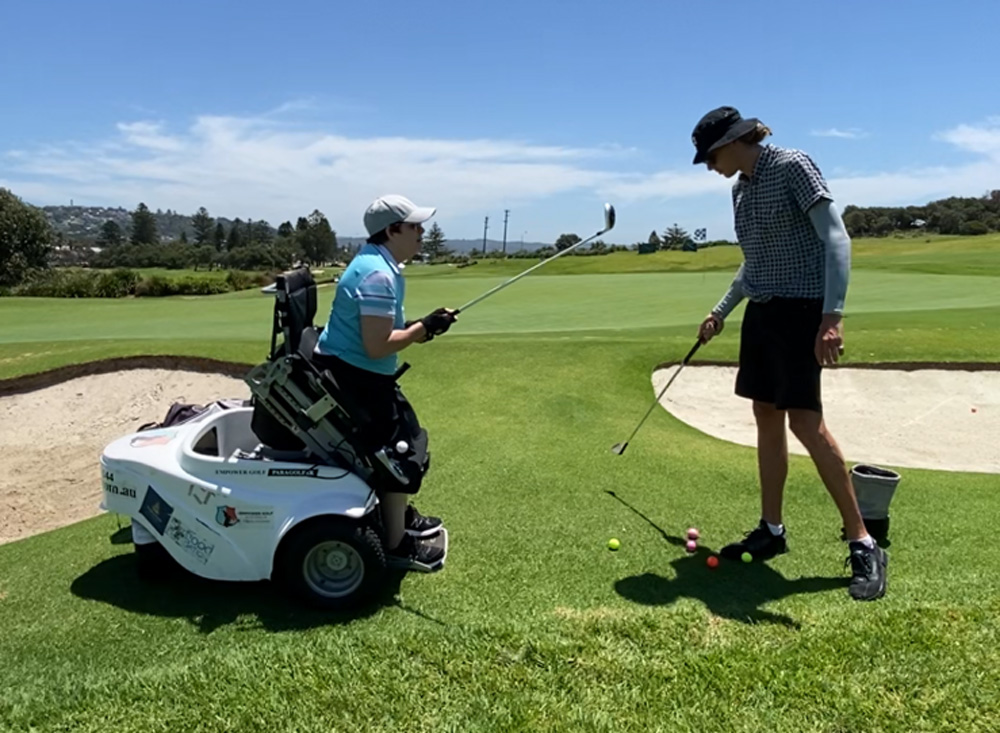
“Sam comes down twice a week with his family, and whilst he hits shots from one end of the range we stand about 100m away and try to take catches. It’s good fun, he’s got some great banter and it’s always a couple of the best lessons of the week.
“I coach a lady called Cath, who has fairly limited mobility and can only hit the ball around 80 metres. So we set up a mini course for her and she holed out from about 50 metres the other day, you should’ve seen how excited she was! We used to have to tee up her ball for every shot, but she’s improved so much and we managed to get her some arthritic grips, so now she’s hitting hybrids and three-woods nicely from off the deck.
“Another client I see, Anthony, had a brain injury around five years ago, and he had to learn how to walk and talk again. We play nine holes every couple of weeks, and in the four months we have worked together he is now able to play nine holes choosing and hit a range of different shots. He’s been making pars and has even beaten the pro – much to his delight!
“He said it’s completely changed his life, and now that he has achieved something he thought would be difficult even before his injury, the small things in his life don’t seem to bother him so much. When you hear that sort of thing, it really gives you a lift.”
As for the highlight of his own playing career, shortly after returning from Canada Sam entered a Pro-Am in Albury-Wodonga, on the border between Victoria and New South Wales; and whilst he didn’t card the winning score, he walked away – or perhaps more accurately drove away – with something altogether more valuable.
“We walked onto the 10th hole, it was a 178-metre par three and they were offering a brand new Mercedes as the prize for anyone who hit a hole-in-one,” he recalled.
“I’d never had a hole-in-one before, but I was very focused on the pin. One of my playing partners, Shane Cochrane, shouted out: “Halve the car with me if you hole it Sammy?” I said maybe!
“Then I hit perfect six-iron shot straight at the flag, we were all up on our toes but the ball looked as if it had stopped just on the lip – then it dropped in and I went absolutely mad! Fortunately the greens were lightning fast, otherwise it would’ve stopped just short of the hole.
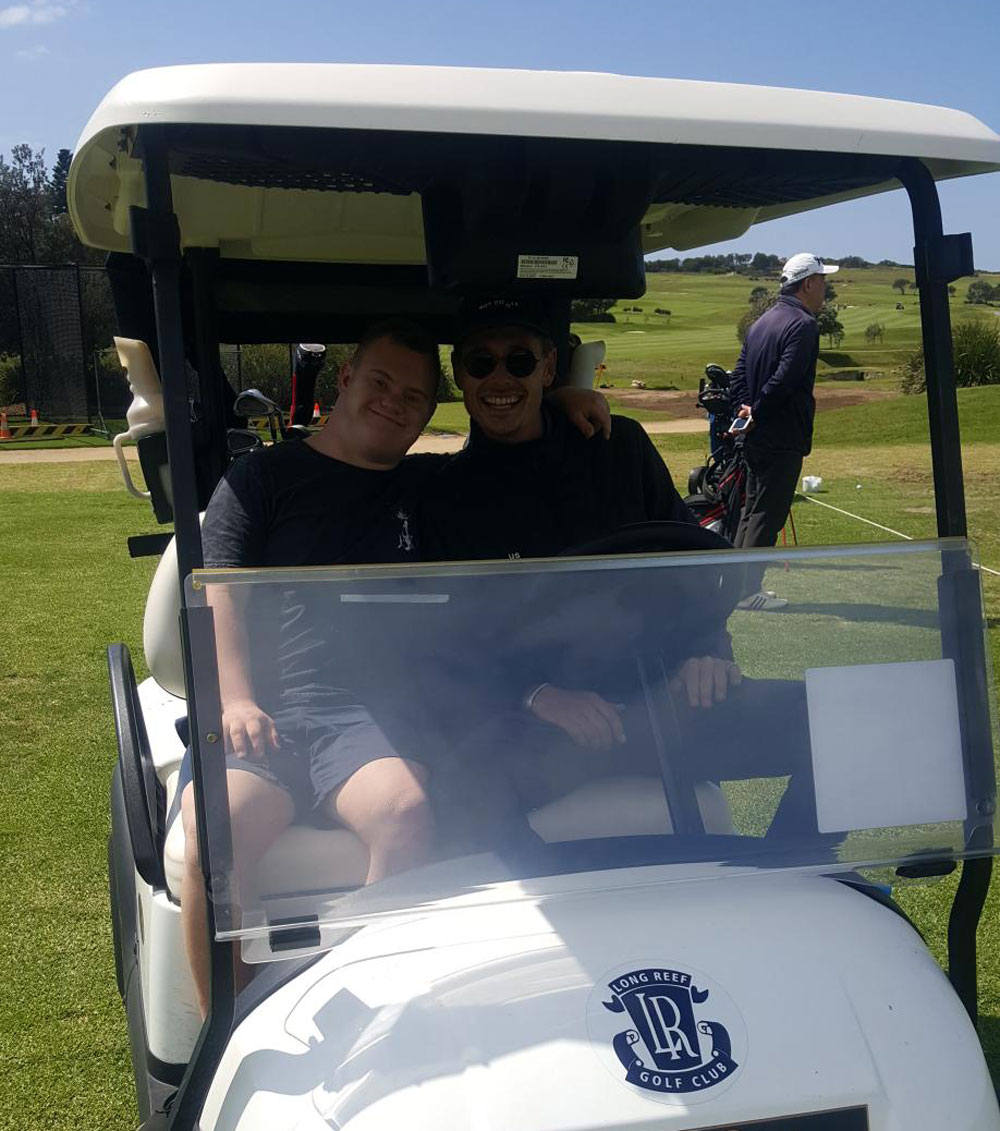
“They offered me $58,000 or the car, I took the car then sold it shortly afterwards for $67,000, so it turned out to be a pretty good decision! I always said that if I got a hole-in-one I wanted it to be with the perfect shot, and that’s exactly how it played out.”
Whilst that shot was pure perfection for the most part golf is not, and indeed never has been, a game of perfect – as Dr. Bob Rotella attests in his book by the same name. That is perhaps one of the reasons why Sam has embraced a more simplified approach to coaching in more recent times.
“I try not to get too caught up in specific technical stuff when I’m coaching because I mainly want my clients to focus on their overall golf swing movement, and of course have fun,” he revealed.
“If your coaching gets too complicated, their head is going to be spinning, they’re not going to enjoy it and we won’t get the results we were after.
“Anyway, you can hit what you think is the perfect shot and then a gust of wind comes along and blows your ball into the bunker. There’s nothing you can do about it, it is out of your control once you’ve hit it so you just have to accept the outcome and move on with your next shot. In many ways, that’s a great metaphor for life.”
You get the sense that he is preaching to the converted – given the challenges they have faced in their lives, it is perhaps easier for Sam’s Empower clients to accept the ‘slings and arrows of fortune’ on the fairways than most golfers.
Sponsors and Supporters











Proudly Sponsored by
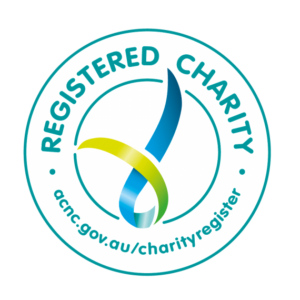
Head Office: 8/47 Gladesville Road, Hunters Hill, NSW, 2110 Australia.
Empower Golf Australia has been endorsed as a Deductible Gift Recipient (DGR) by the Australian Tax Office. EGA is a Public Benevolent Institution and has also been endorsed for Income Tax Exemption and GST Concession. Donations are Tax Deductible for Australian residents. ABN: 18 601 193 122.
These endorsements can be sighted on the ABN Lookup website.